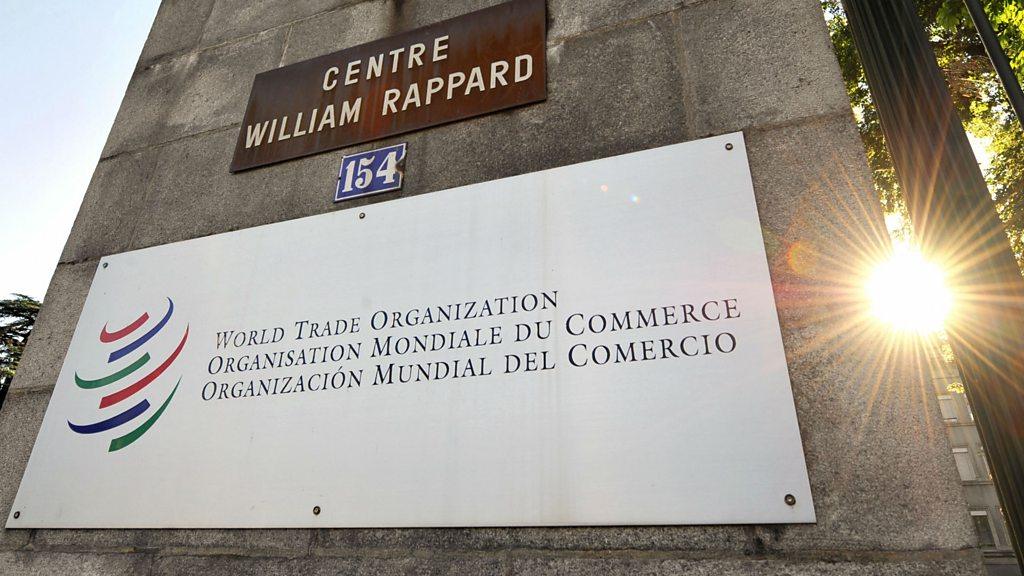Brexit: Food chiefs warn on EU tariffs
- Published
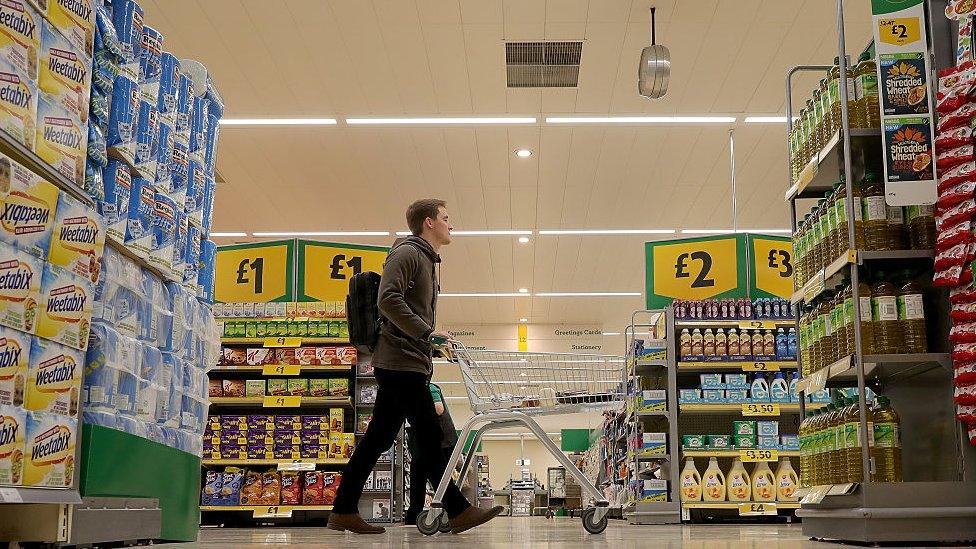
Farmers, supermarkets and food suppliers have called on Theresa May to secure a free trade deal with the European Union after Brexit.
Industry bosses said failure to do so could harm the UK's supply of food and drink and lead to higher prices.
The National Farmers Union (NFU), the Food and Drink Federation (FDF) and the British Retail Consortium (BRC) made the call in a joint letter, external.
Separately, the EEF engineering group said a deal needed to be struck.
Terry Scuoler, the chief executive of the EEF, said: "The EU is our sector's single biggest trading partner in a complex, tightly interwoven trading environment."
He told the BBC that falling back on World Trade Organization (WTO) rules would hit some sectors hard.
"I struggle at the idea of dismantling what is the best free trade agreement in the world. WTO rules may well be an end-of-the-day back-up, but WTO rules... vary enormously across industrial sectors - 10% on automotive and automotive parts and more for agricultural products."
The prime minister is due to start the process of leaving the EU on Wednesday.
Mrs May will trigger Article 50, after which the UK has two years to finalise the terms on which it will withdraw from the EU.
'Keep prices low'
The NFU, BRC and FDF urged ministers to ensure higher tariffs were not imposed on imported and exported produce.
Although much of the industry is based in the UK, it "cannot operate in isolation", they said.
Helen Dickinson, director general at the BRC, said the bloc was by far the UK's biggest trading partner for food.
"To keep prices low for consumers, it is particularly important that we don't have any new tariffs and we maintain frictionless movement of goods and put consumers at the heart of this," she told the Mail on Sunday, external.
The groups' members include British farms, food giants such as Nestle and supermarket chains such as Tesco.
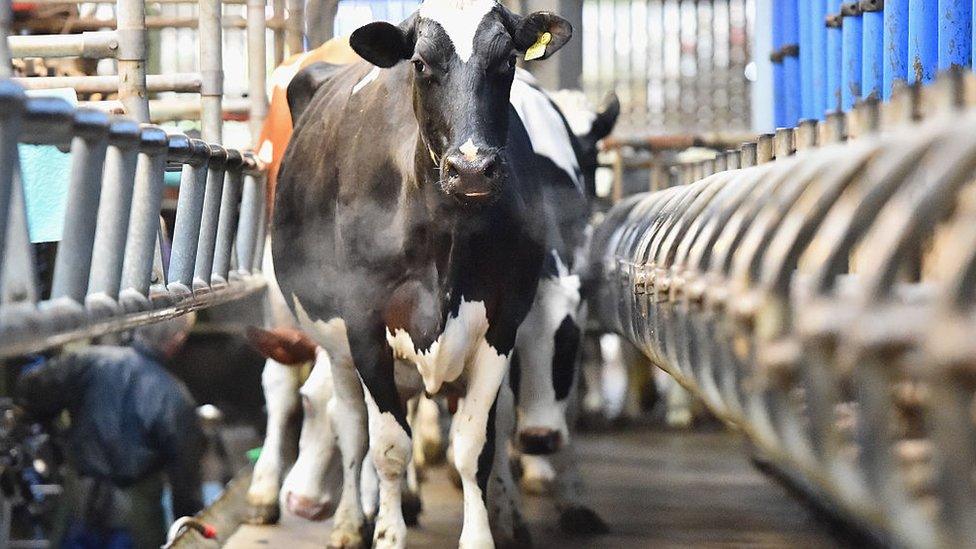
The prime minister has said leaving the EU with no deal would be better than signing the UK up to a bad one.
However, the food groups suggested the industry and consumers would suffer from the consequences of no trade deal if tariffs and customs checks were imposed after Brexit.
They have called on the government to:
Ensure a "smooth and orderly Brexit" by agreeing transitional arrangements. This would avoid "costly and disruptive customs checks, processes and procedures"
Sign a free trade deal with the EU in the medium term. The deal would ensure there were no tariffs on goods being exported into or imported from the EU
Secure the benefits for UK traders of existing EU preferential trade arrangements, including on agricultural imports
Co-operate with non-EU countries on making sure their regulations for food and drink are equal to the UK's
Ahead of the Brexit talks, many different industries are lobbying ministers about the importance of their sectors and how they will be affected when Britain leaves the EU.
The food groups estimate that their members employ 3.9 million people in total and are worth £108bn to the UK economy each year.
They say farmers need to import animal feed, and to export products if UK demand is insufficient.
Food and drink manufacturers rely on exports to grow their businesses and on imports for some ingredients, while retailers need access to a full range of goods all year round, they add.
- Published14 October 2017
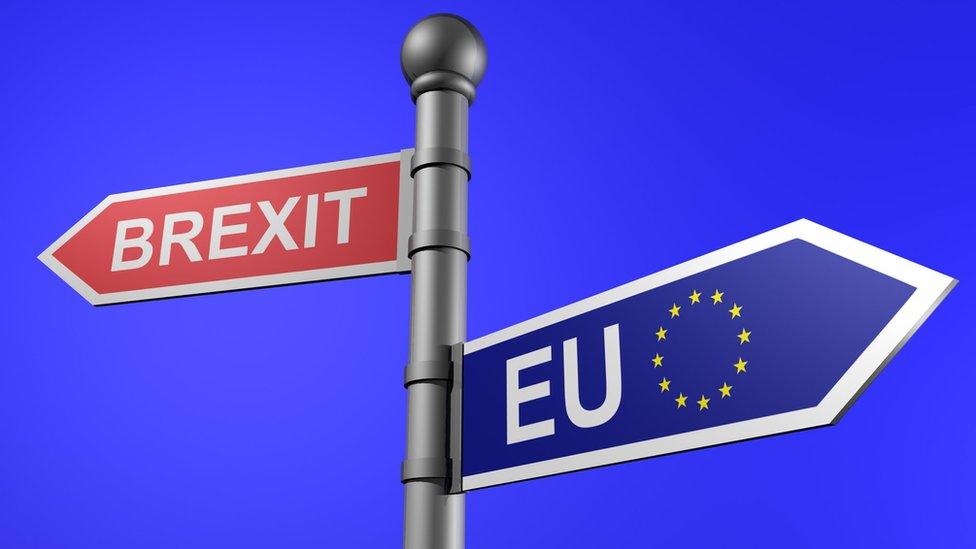
- Published8 March 2017
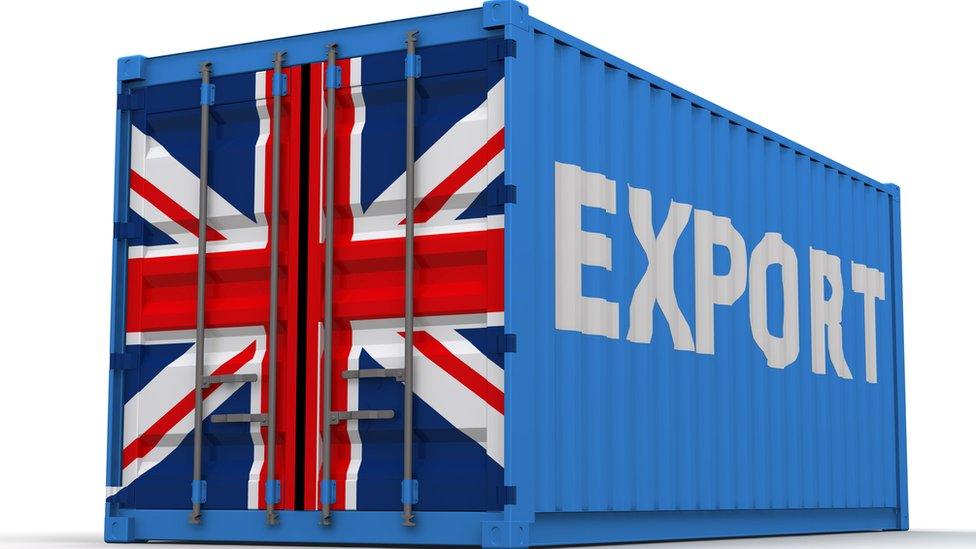
- Published16 March 2017
